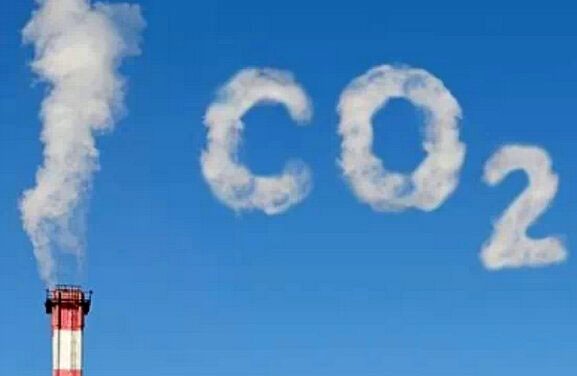Media Report

- Reuters reports: "China's clean energy pledges are prompting a supply of new financing tools to fund the estimated 43 trillion yuan ($6.53 trillion) needed to switch from heavy, polluting industries to clean projects. The Beijing Environment Exchange endorsed a call option backed by 20,000 local carbon permits on Thursday, the first of its kind in China, which was bought by trading firm CMB Sinolink....To try and meet the capital requirement for this economic restructuring, China plans a national carbon market by 2017 which will cover all provinces and nearly 10,000 of the most carbon-intensive companies mainly in power, steel and oil industries."
- TIME reports: "Hours after Hong Kong bookseller Lam Wing-keedefiantly told reporters on Thursday evening that Chinese authorities had detained him for eight months (five of them in solitary confinement), and forced him to issue a scripted TV confession for trading in banned books, China's Global Times delivered what seemed like a state-sanctioned riposte. The daily...dismissed international condemnation of the mysterious disappearances of five Hong Kong–connected booksellers....[The Global Times] warned that although Hong Kong is governed by different laws from the rest of China, 'all different forces in Hong Kong must respect the political system in China. It's not right to take actions which may harm the state security and the political stability in mainland China.'...But by later on Friday morning, the link to the Global Times article had been severed."
- The Wall Street Journal reports: "The landlocked African kingdom of Lesotho doesn't have an obvious stake in the South China Sea, but it is among some 60 countries that China says stand behind it as it faces potential censure by an international tribunal over its territorial claims there. The sudden involvement of Lesotho and other small nations far from Asia is the product of a Chinese blitz to rally support in the final countdown to a ruling in The Hague, which could come this month, on a case brought against China by the Philippines. The response has been less enthusiastic than China suggests, however: Only eight countries have publicly stated their support for its right to boycott the proceedings in The Hague....Five countries on China's list have outright denied backing Beijing, including two members of the European Union. For a country that has long castigated the U.S. for 'internationalizing' the dispute, the drive suggests growing concern in Beijing that the ruling, which can only be enforced through international pressure, could leave it isolated."
Calendar
- 2016-06-16 Shanghai Disneyland opens with hopes cash will rain down
- 2016-06-15 China bans exports to NKorea with possible military use
- 2016-06-14 China, US Hold Talks to Bridge Cybersecurity Differences
- 2016-06-13 China investment growth slowest since 2000
- 2016-06-12 'Chinese Hawaii' Shows Xi's Anti-Graft Drive Hasn't Hurt Economy
- 2016-06-10 South Korea Sends Military Boats to Repel Chinese Fishermen
- 2016-06-09 Japan Protests to China After Spotting Chinese Warship Off Disputed Islands
- 2016-06-08 U.S. Accuses Chinese Jet of Flying Too Close to American Plane
- 2016-06-07 U.S. presses China to reduce barriers for foreign business
- 2016-06-06 China to submit 'negative list' for U.S. investment treaty talks next week
News
- Reuters China climate goals trigger launch of new derivatives
- TIME China Imposes Blackout on Hong Kong Bookseller's Revelations
- The Wall Street Journal Beijing's Claims of South China Sea Support May Not Hold Water
- The New York Times Defying China, Hong Kong Bookseller Describes Detention
- The New York Times Architects See Potential in China's Countryside
- Reuters China, Hong Kong stocks track Asian markets higher as Brexit fears ease
- The Washington Post The saga of Hong Kong's abducted booksellers takes a darker turn
- The Wall Street Journal Beijing Regulator Orders Apple to Stop Sales of Two iPhone Models
- Bloomberg Business Just How Chinese is Shanghai's Disneyland?
- The Wall Street Journal Another Chinese Money Manager Faces Cash Crunch
- Bloomberg Business China's H Shares Pare Weekly Decline on Easing Brexit Concern
- The New York Times 2 Chinese Activists Sentenced to Over 10 Years on Subversion Charges
Commentary
- Foreign Policy At Scarborough Shoal, China Is Playing With Fire: Retired Admiral
- The Wall Street Journal: China Real Time Study Finds China's Ecosystems Have Become Healthier
- Bloomberg Gadfly This Risky Chinese Takeover Just Might Get Done
- The Wall Street Journal: China Real Time Chinese Tourists Stir Up the Waters
- The National Interest 5 Common Myths about China's Power
- The Washington Post Loan sharks in China offer student loans for nude photos, giving new meaning to 'naked greed'
- The Diplomat US Navy Sends Electronic Attack Warplanes to Philippines Amid South China Sea Tensions
